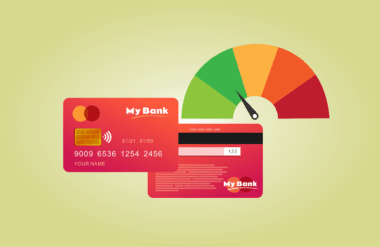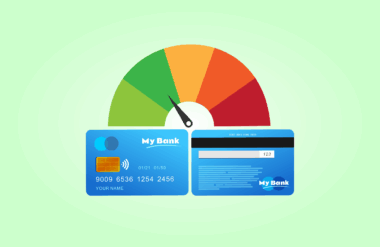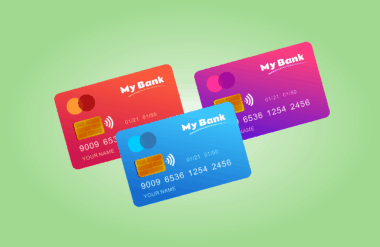Strategies to Improve Credit Utilization and Boost Credit Scores
The first step in improving your credit utilization is to understand what it is. Credit utilization ratios indicate how much of your available credit you are currently using. For example, if your credit limit is $10,000 and you have a balance of $3,000, your utilization rate is 30%. Experts recommend keeping this percentage below 30% for optimal credit scoring. Excessive utilization can negatively affect your credit score, signaling potential risk to lenders. Therefore, monitoring your credit utilization regularly is crucial for maintaining a healthy credit profile. You can check your scores through most credit card providers or dedicated financial services.Budgeting effectively is a key part of managing credit utilization. Review your spending habits to identify areas where you can reduce expenditures. Consider consolidating debts to lower your credit utilization across accounts. Lastly, manage your charges so you can pay off the balance each month. By being proactive about your credit utilization, you not only improve your score but position yourself to secure better lending options in the future.
Another effective strategy is to increase your credit limits. By requesting a higher limit on your existing accounts, you can improve the utilization rate without increasing your debt. However, only increase your limits if you can manage the responsibility of higher spending wisely. It’s essential that you do not view an increased limit as an excuse to overspend. A greater credit limit paired with the same, or even decreased, spending can significantly lower your utilization rate. You might also consider opening new credit accounts, but be cautious. Opening multiple accounts at once may affect your score temporarily due to hard inquiries. Always balance the pros and cons before taking action. Keep in mind that new accounts can diversify your credit mix, which also can help improve your score in the long run. In effect, by carefully planning your credit strategy, you can optimize your credit limits while keeping a low utilization ratio. Remember to stay disciplined; even with higher limits, it is important to maintain good financial health by managing your overall expenses effectively.
Utilizing Credit Wisely
Another strategy for lowering credit utilization rates involves transferring balances. If you have high balances on multiple cards, you could consider moving those to a credit card with a lower interest rate or one that offers a balance transfer option. This tactic can allow you to save on interest and pay down debt more quickly. Before initiating a transfer, however, check the fees and terms associated with the new card. Pay attention to any introductory rates and how long they last, along with the standard interest rate that follows. In many cases, balance transfers come with limited-time promotional offers, making it easier to pay down high-interest debt within the promotional period. Paying off transferred balances aggressively can contribute to reducing your overall credit utilization efficiently. Moreover, managing your payments diligently will prevent accumulating additional interest charges. Make sure that you do not accumulate more debt while managing your existing credit. Using a combination of these strategies can lead to great improvements in your credit situation, resulting in better access to financial products.
It may also be beneficial to pay down balances more frequently. Instead of waiting for the due date every month, consider making multiple payments throughout the month. This approach can significantly impact your overall utilization at the time your creditor reports to the credit bureaus. Many lenders report credit utilization on a monthly basis, and if your report date falls after you’ve made extra payments, you’ll show a lower balance. Additionally, creating a schedule to make payments bi-weekly can help you stay consistent and disciplined in your repayment efforts. Automating these payments can ensure that you do not miss any and provides a seamless way to maintain a healthy credit utilization ratio. In turn, this practice can positively affect your credit score, lower your overall debt burden, and reduce your financial stress. Remember that consistency is key; developing a habit of regular payments can lead to long-term financial benefits. Each of these techniques will help you build a more robust financial future while avoiding the pitfalls of high credit utilization.
Understanding Credit Reports
In addition, it’s crucial to keep an eye on your credit reports. Free annual reports are available to everyone and can highlight discrepancies, suspicious activity, or errors that can affect your credit utilization and, ultimately, your score. If you discover any inaccuracies on your report, take the necessary steps to dispute them with the credit bureau and the creditor involved. Correcting any negative inaccuracies can significantly enhance your credit score. Furthermore, sign up for credit monitoring services to stay alert about your credit activity. Understanding how transgressions, such as missed payments, can impact your utilization and score will help you avoid those situations in the future. Regularly reviewing your report can also motivate you to stay on top of your credit management efforts. Make sure you know your score, as well as what factors contribute to it. Utilize this information to make informed financial decisions. Lastly, aim to keep a clear record of your accounts, which will undoubtedly pay off in building a healthier financial picture over time.
Lastly, consider seeking professional financial advice. If you find your credit utilization and management overwhelming, consulting with a financial advisor can provide tailored strategies specific to your situation. Professionals can analyze your current credit standing and help you devise a plan to address shortcomings in your credit behavior. They may recommend alternative strategies for improving your credit score based on your financial habits and existing debts. Engaging with an advisor can lead to increased financial literacy, which plays a key role in credit management. Knowledge about credit products, how they operate, and the implications of credit utilization can shape your future borrowing power. Working with experts may also give you access to exclusive resources and tools that help streamline your credit repair process. By investing time and money in professional advice, you can pave the way to a stronger credit profile while empowering yourself in your financial journey. Take a proactive approach to your credit management, and consider engaging with professionals when necessary.
Improving your credit utilization and boosting your credit scores is an ongoing process that requires strategic planning and diligent management. By implementing the strategies outlined above, you can effectively improve your financial standing, making you a more attractive candidate for loans and credit. Maintaining a utilization ratio below 30% may not be achieved overnight, but with steady effort, it is definitely possible. Regularly monitor your credit utilization, pay down debts strategically, and ensure that you don’t overextend your credit limits. All these tactics will contribute to a solid credit profile that can open numerous doors for your future financial endeavors. The combination of prudent budgeting, acquiring knowledge, seeking professional help, and employing tactical strategies will help significantly improve your overall situation. Always remember, the goal of managing your credit isn’t just to improve a number but to foster financial health and security in your life. Be patient and consistent, and over time you will likely rise to meet your financial ambitions.
In conclusion, understanding credit utilization limits can significantly influence your overall credit scores. Being proactive about managing these limits through various strategies can yield beneficial results in the long run. Whether you opt to increase your credit limits, pay down balances more frequently, or consider professional advice, make informed choices along the way. Remember that a better understanding of your credit situation empowers you. This empowerment leads to improved credit utilization, a healthier credit score, and ultimately greater financial freedom. As you navigate your financial journey, keep these strategies tangible and remain persistent. With time and disciplined practices, you can enhance your financial future and enjoy the benefits that come with improved credit.








